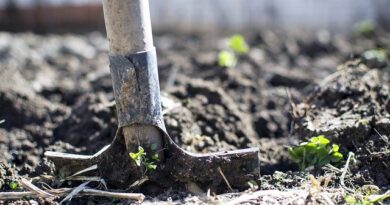Pandit Deen Dayal Upadhyay Unnat Krishi Shiksha Yojana (PDDUUKSY)
Ministry of Agriculture and Farmers Welfare
Context:
Training programmes were organized for the farmers under PDDUUKSY in the field of organic farming, natural farming and other related latest technologies.
- Launched in the year 2016
- Implementing agency Indian Council of Agricultural Research (ICAR).
About Unnat Krishi Shiksha Yojana:
- Pandit Deen Dayal Upadhyay Unnat Krishi Shiksha Yojana was launched in the year 2016.
- The objective of scheme to promote agricultural education in terms of cow-based economy, natural farming and organic farming.
- The initiative is envisioned to transform rural development processes by partnering with knowledge institutions.
- It is an initiative of the Ministry of Agriculture and Farmers Welfare and is implemented by the Education wing of Indian Council of Agricultural Research (ICAR).
Objectives
The scheme seeks to:
- Set up skilled Human Resource at the village level to address the needs connected with organic farming and sustainable agriculture.
- Provide professional support to the rural habitats in the field of organic farming, natural farming, rural economy and sustainable agriculture.
- Extend other support activities of the scheme at the village level through established farmer training centers.
Scope of Implementation
- A total of 100 centers across the country would be engaged in implementing the scheme.
- These centers were selected on the basis of their knowledge, skill, ability and experience connected with organic and natural farming.
- A team of coordinators numbering to four has been appointed for coordinating the various activities of the scheme. Some of these activities include the provision of training on issues connected with organic farming, natural farming and cow-based economics as per the designed modules, the selection of beneficiaries in consultation with nodal agencies, ensuring the welfare of the participants, etc.
Criteria for Selecting Farmers
- The designated Centers may select the farmers for this initiative, subject to the conditions that:
- The farmers must be assessed in terms of their interest in organic farming, natural farming and cow-based economy prior to their selection.
- Priority must be attached to the farmers who are currently practising organic farming, natural farming or cow-based economy.
- Farmers of all communities must be given a fair representation.
- The selection shouldn’t involve any gender discrimination.
Compliance Requirements of the Center
- Centers entrusted with the responsibility of training farmers are required to:
- Submit a detailed inventory of the farmers as per the enclosed proforma at the cessation of each training session to the Nodal Officer of the University/Institute.
- Maintain an attendance register for all the days of training.
- Furnish a final report at the end of the training program by including the photographs or videos of the inauguration, closing ceremonies, field visits, demonstrations, lectures, newspaper cuttings of the program, etc.
The Themes in Brief:
The scheme is based on the themes of cow-based economy, natural farming and organic farming. Here’s a brief account of each of these themes:
- Cow-Based Economy: With respect to agriculture, Indian cow breeds are proven to possess genetic capacity that produces better quality milk. The milk so produced contains a higher level of CLA (Conjugated Linoleic Acid) which is anti-carcinogenic.
- Natural Farming: Natural farming eliminates energy/production costs, fertilizer and other input costs, improves underground water level without contamination, helps conserving moisture and protects the crops from the effects of climate change.
- Organic Farming: The methodology is primarily aimed at cultivating the land and raising crops in such a way as to ensure the health and life of the soil. It involves the use of organic wastes and other biological materials along with beneficial microbes.
Source: PIB
You can find many articles on SCHEMES (part of GS II) and AGRICULTURE (part of GS III) in our website. Go through these articles share with your friends and post your views in comment section.


